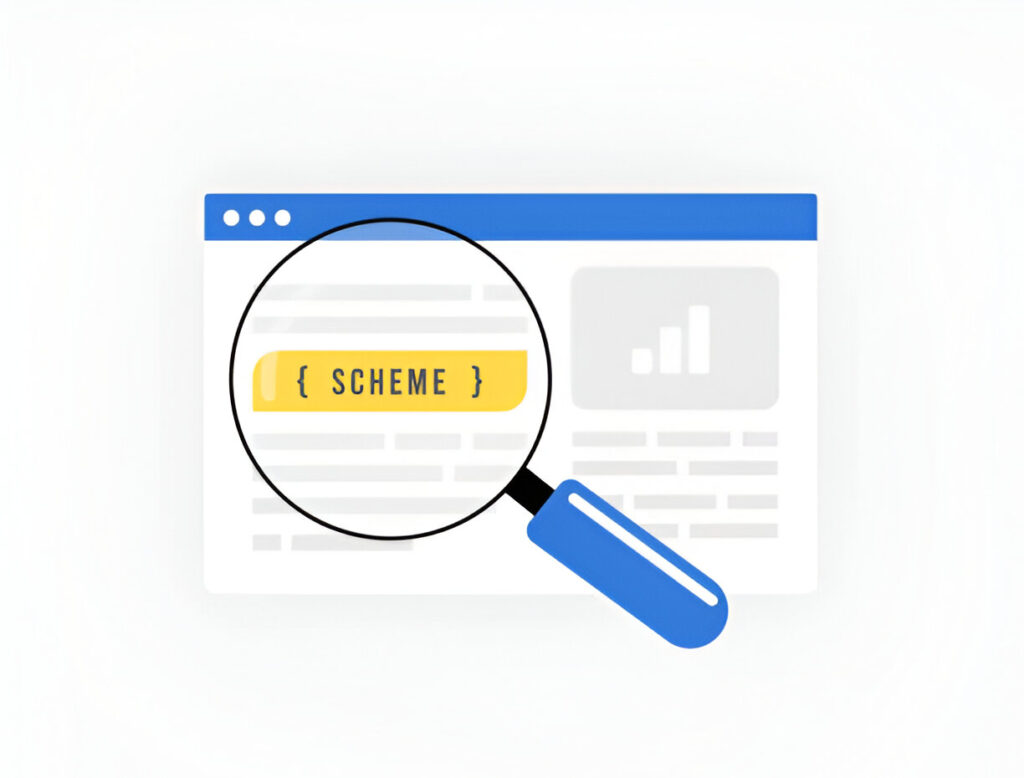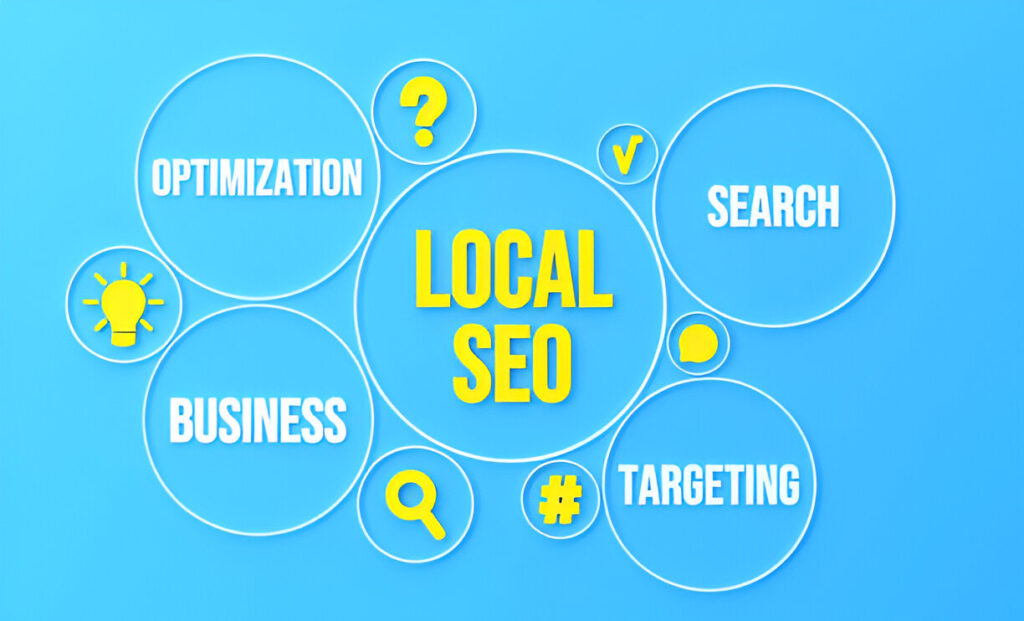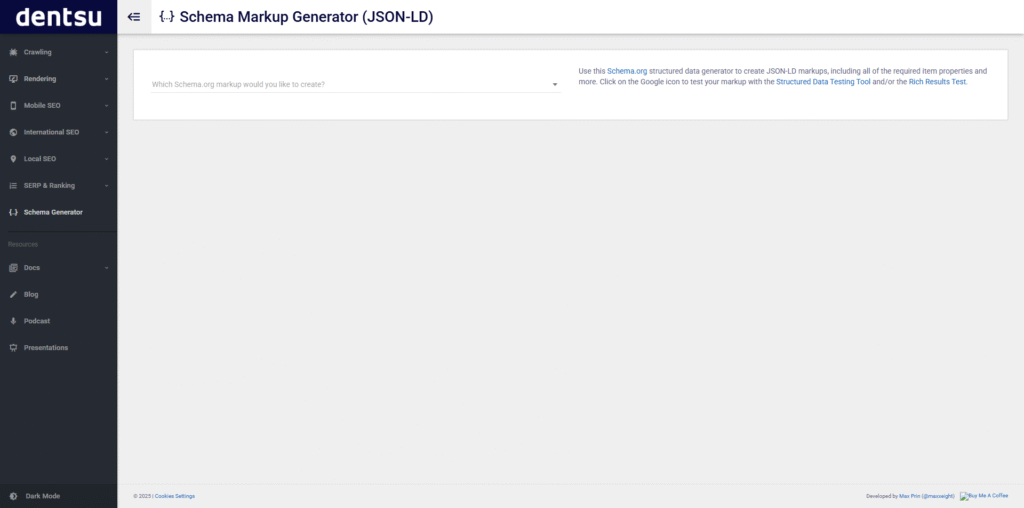In 2025, local SEO is more competitive than ever. With Google’s AI Overviews and Featured Snippets dominating search results, standing out requires more than traditional SEO tactics. One of the most effective — yet underutilized — strategies is schema markup.
In this complete guide, you’ll learn:
What schema markup is
How it enhances local SEO
Types of schema every local business should use
Tools and step-by-step implementation strategies
Common mistakes and how to fix them
Let’s explore how structured data can transform your visibility in local search.
What Is Schema Markup and Why Does It Matter for Local SEO?

Schema markup is structured data added to your website’s HTML to help search engines better understand your content. It uses a standardized vocabulary (like schema.org) to define entities such as people, businesses, locations, and services.
How Schema Works with Google
Google uses schema to power rich results, enhance AI Overviews, and display relevant snippets in SERPs. For local businesses, this can include:
Business hours
Reviews and ratings
Location and map pins
Services offered
Booking options
Example: A dental clinic with LocalBusiness schema can appear in map packs and showcase patient ratings directly in search.
Why It Matters More in 2025
Google’s AI Overviews rely on structured context. Schema tells the algorithm exactly who you are, what you do, and why you’re relevant. This direct communication improves:
Search relevance
Click-through rates
SERP visibility
How Schema Markup Supports Local SEO Optimization in 2025

Schema plays a crucial role in entity optimization — key for local SEO success in 2025.
NAP Consistency + Schema = Trust
Name, Address, Phone (NAP) consistency across schema markup, Google Business Profile, and website content builds authority and trust signals.
Enhances Google’s AI Understanding
Using LocalBusiness and Service schema helps Google recognize you as a verified, local entity — boosting your chances of inclusion in:
-
Local Pack
-
Knowledge Panel
-
AI Overview summaries
Drives Rich Snippets
Structured data enables enhanced snippets with:
-
Star ratings
-
FAQs
-
Event listings
-
Pricing and service lists
Types of Schema Markup Every Local Business Should Use

1. LocalBusiness Schema
Defines your business type, name, address, contact info, hours, etc.
2. Organization & Website Schema
Used to declare brand-level information and corporate structure.
3. Review & Rating Schema
Displays average rating and review count in search.
4. Service Schema
Describes your offerings (ideal for lawyers, plumbers, dentists, etc.).
5. Product Schema (if applicable)
Showcases individual products or SKUs.
6. FAQ Schema
Boosts visibility with expandable question boxes in SERPs.
7. Event Schema
Great for businesses hosting workshops, webinars, or promotions.
8. Breadcrumb Schema
Improves navigation and internal linking structure.
Pro Tip: Use Google’s Structured Data Markup Helper to create basic schema.
How to Add Schema Markup to Your Website (Step-by-Step)

Step 1: Choose the Right Schema Type
Match schema types to your business model (LocalBusiness, Service, etc.).
Step 2: Generate JSON-LD Code
Use tools like:
Step 3: Add Code to Website
Paste JSON-LD into the or footer
For WordPress, use plugins like Rank Math or Yoast
Step 4: Test with Google Rich Results Tool
Ensure your schema is valid and correctly implemented.
Tools to Implement & Audit Local SEO Schema
1. Google Rich Results Test
Validates if your schema enables enhanced listings.
2. Schema Markup Validator
Official validator for structured data syntax.
3. Rank Math or Yoast
SEO plugins that support auto-schema generation for WordPress users.
4. Screaming Frog / Sitebulb
Audits technical SEO and identifies schema gaps.
Real-World Example: Schema in Action
Case Study: Local HVAC company adds LocalBusiness, Service, and Review schema to their homepage and service pages. Within 45 days:
CTR increases by 28%
Local Pack visibility improves
Star ratings start appearing in organic results
Key Takeaways
Schema leads to faster crawling and more accurate indexing.
Rich results = more trust and clicks.
Schema Markup & Local SEO Strategy: Power Combo
Aligning Schema with Content
Schema must reflect your actual content — no fake data.
Connecting Schema to Google Business Profile
Link structured data to your verified GBP to strengthen entity signals.
Avoiding Common Mistakes
Don’t mark up hidden content
Avoid duplicating conflicting schema types
Use consistent NAP across schema and site
Conclusion: Start Structuring for Success
Schema markup is one of the most powerful tools in your local SEO toolkit — especially in 2025’s AI-driven search world. When used strategically, it boosts visibility, builds trust, and makes your business more accessible to both users and search engines.
Start implementing schema today — or audit your existing data to uncover untapped ranking opportunities.
FAQs
Schema markup is structured data that helps search engines better understand your content and show enhanced results.
Yes. It improves visibility, trust, and helps your business appear in rich results like map packs and FAQs.
Use plugins like Rank Math or Yoast that offer auto-schema features for local businesses.
Indirectly. Schema improves click-through rates and rich results, which can influence search performance.
Update when your business details change (hours, services, location) or after redesigning your site.